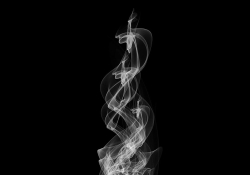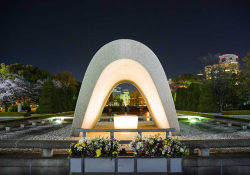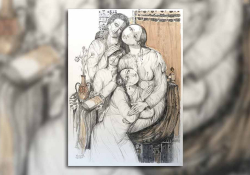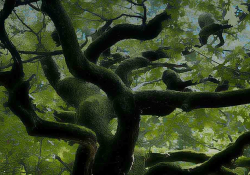Five Bilingual Poems from Bolivia
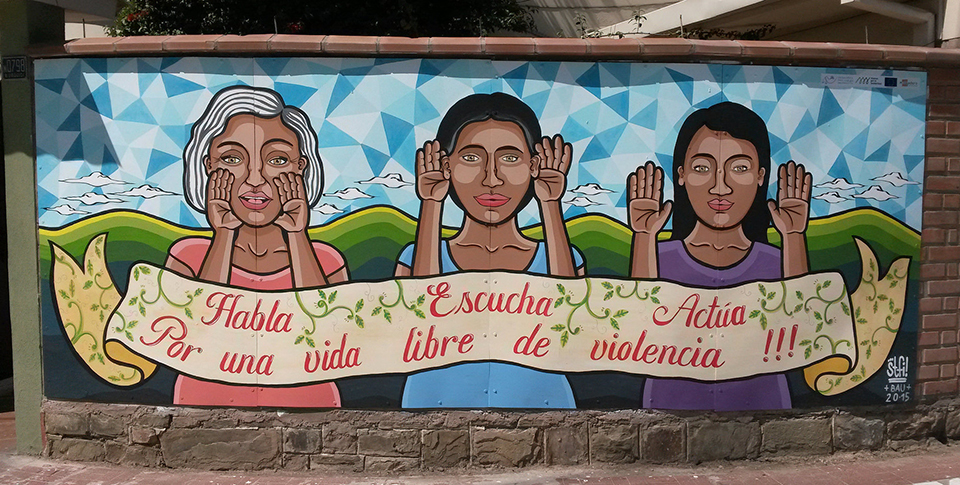
Mural in Cochabamba, Bolivia / Photo by proyecto mARTadero
For more on the poetry of Valdivia, read the companion essay by Margaret Randall.
Aullido poema octogonal
En el graznido de mi noche
más largo que un pensamiento apelmazado
por la atmósfera;
los deseos se cuajan como alimento vital
violados por el aire.
Yo subía por las gradas desgastadas del tiempo;
cada paso removía la huella de mis ancestros,
y su aullido rompía el silencio octogonal.
Buscaba inspirarme en tu risa;
pero tu risa flotaba estática en el vacío,
tratando de llamar la atención
de los harapientos personajes
que desfilaban por filas verticales.
La mezcla de vida y hastío
se escapa por las mucosas
negando los caminos,
las manos diligentes,
los ojos purulentos de sabiduría,
los instintos metidos en cascarones.
Sobre la noche, sobre la risa vacía,
sobre mi sombra engrandecida por la fiebre,
se mezcla la lluvia de indiferencia
fosilizando ideas premáticas.
Octagonal Howl Poem
In the cawing of my night
more drawn out than a thought
compacted by the atmosphere;
desires curdle like some vital sustenance
raped by air.
I climbed bleachers worn by time;
each step removed my ancestors’ footprints,
and its howl shattered an octagonal silence.
I searched for inspiration in your laughter;
but your laughter floated static in the void,
begging for the attention
of the ragged ones
parading in vertical lines.
A mix of life and weariness escapes
through mucous membranes
negating pathways,
diligent hands,
eyes festering with wisdom,
all those armored instincts.
Above the night, above the empty laughter,
above my shadow magnified by fever,
the rain of indifference falls,
fossilizing dogmatic old ideas.
(Original published in Trópico Uno #3, February–March 1965)
Cuestión de lógica
Vivo en una casa herida, por eso, amigo, quería preguntarte
si las filas de casas y los apartamentos tienen un agujero triste
en su piso de mármol, en sus paredes o en los cuatro ángulos
que hacen la casa.
No, no te voy a decir que soy la muchachita inocente que se
pasea sin decoro (quiero decir, con la parte inferior del cuerpo
al aire) por las calles de una ciudad, ni que la casa en que vivo
tiene una ventana por cada punto cardinal, ni que me arden las
manos porque anoche en un descuido me picaron las estrellas
de gamma.
Tampoco voy a decirte que te comprendo, ni quiero que
me comprendas. Sé que no te importan mis complejos amontonados
durante x años, esto lo deduzco porque a mí me sucede
tal con los tuyos. Claro que no desquito la posibilidad de
que nos importe demasiado y nos llamemos humanos por puro
gusto de clasificarnos. Bueno, no tan por puro gusto, sino porque
comemos, o, mejor dicho, necesitamos comer 3 veces al día
y dormir 8 horas . . . sin lo cual tú y yo seríamos sencillamente
catafalcos de corales.
No, no vivo en una casa que tiene puntos cardinales por
ventanas. Vivo en la cuadratura de un círculo mordida por los
terremotos que aquí abundan. Sabes, voy a comunicarte un
secreto, aunque no te importe: bajo la sombra que me cobija
(es decir, el omoplato de un elefante) florecen los dedos y el
ansia por echar humo y madurar más que la levadura fermentada.
El firmamento acapara todas las axilas, entre ellas la tuya y
la mía (ves que no somos tan distintos), por eso sientes cansancio
al despertar de un sueño reparador o laxado e inconforme
después de amar. No, amigo, pueden no importarme tus callos
o a ti la debilidad de mis uñas, pero vivimos en una ciudad que
se barre todas las noches y durante el día se ensucia, es lógico,
tampoco en nuestra ciudad (conste que no sabemos si tenemos
dios) existe la envidia sino en las películas. Lo que existe es
necesario entre esto —tú aburrido de escucharme y yo aburrida
de buscar temas—. Dime si no hubieran malhechores —santos,
como los llamo yo—, sucedería que no hubiera necesidad de
cárceles, al no existir cárceles estarían de más los carceleros y al
faltar carceleros se rompería irremediablemente nuestra sociedad
que tiene siglos edificándose.
Entonces tú y yo, además mi casa y su arquitectura, de la
cual me he olvidado y —por cuestión de infalible lógica— esto
que digo: “no estamos de más”.
A Question of Logic
I live in a wounded house and so, my friend, I want to ask if the rows of houses and apartment buildings have a sad hole in their marble floors, in their walls or in the four corners that determine a dwelling.
No, no, I won’t say I am the innocent young girl walking about immodestly through city streets (I mean naked from the waist down). Nor do I mean that the house I live in has a window at each cardinal point, or that my hands smart because last night, in a moment of carelessness, they were burned by gamma ray stars.
Nor will I say I understand you, or want you to understand me. I know you don’t care about the neuroses I’ve developed over x number of years. I know this because the same is true for me when I think of yours. Of course, I cannot discard the possibility that we may care too much, and they will call us human for the pure joy of labeling us. Well, not simply for the pure joy, but because we eat, or rather, need to eat three times a day and sleep eight hours . . . without which you and I would be reduced to coral shells.
No, I don’t live in a house with cardinal points for windows. I live in a squared circle bitten by the earthquakes so endemic to this place. Listen, I will tell you a secret even if you don’t care about it: beneath the shadow that shelters me (I mean the shoulder blade of an elephant) grow fingers and a desire greater than fermented yeast to let off steam and mature. The firmament gathers all armpits, among them yours and mine (you see, we aren’t so different). That’s why you feel tired upon waking from a restorative dream, or listless and noncompliant after making love. No, my friend, your calluses may not matter to me nor the fragility of my fingernails to you, but we live in a city that sweeps itself clean each night and dirties itself again each day. It makes sense. Not even in our city, except in the movies (and remember, we don’t know if god accompanies us) does envy exist. What exists is necessary to all of this—you bored with listening to me and I bored with searching for subject matter—. Tell me, if there were no criminals—saints, as I call them—there would be no need for prisons. If there were no prisons, wardens would not be needed. And without wardens, our society that has been constructing itself for centuries would break apart.
Then you and I, as well as my house and its architecture, which I’ve forgotten about and—by a question of infallible logic—all point to what I say: “we are not superfluous.”
Para Eduardo
I.
Se le cayeron los hombros. Con esto comenzó su desmoronamiento,
sucedido después de los nuestros. Él dejó lo prometido
aunque no pudo encaminarlo. Se nos autorizó teledirigirlo desde
nuestras ruinas, empezamos a recolectar el olor de huellas
humanas para que pudiera pasar desapercibido. Al lanzarlo, sus
reacciones fueron las de un extraviado, pero nosotras ya nada
podíamos hacer.
Empezó a caminar. Era magnífica su estela que evocaba la posesión
de los pulpos marinos, pero lo confundía el jadeo de los
perros y el de las mujeres prontas a parir. Lo hacían nulo los
ruidos; los tonos de las voces embarraron su estela. Su mirada
empezó a captar gestos dementes, y nos gritó, diciendo que la
guía que le habíamos dado para que señalara un camino fresco
estaba basada sólo en mentiras. Dijo que ellos se escupen en los
ojos, que meten sus testículos en las bocas de sus madres, que se
persiguen y no hay un rostro sin cicatriz o lepra.
Eso gritó él, haciendo estremecer nuestros vientres y nada pudimos
hacer para impedir su autodestrucción.
En las noches corría desesperado buscando a los suicidas, y al
encontrarlos metía su cabeza en las cajas toráxicas. El olor de
las huellas se posesionó de su noble naturaleza en abandono, y
el distinguirlo era difícil hasta para nosotras.
Sus ojos se volvieron rojos.
II.
¿Qué?, te preguntaste, pero ya eras hijo de familia. Gritaste y
el aire de todos los días ya estaba dirigiendo tus pulmones. Sin
embargo reflexionaste, hiciste conciencia de esto. Voy a realizarme
por los demás, voy a calmar el ardor de estos pequeños
asesinos de pájaros, voy a construir un motor para hacer sonreír
corazones y llenar barrigas —pensaste y pensaste— voy a bajar
a Dios del Penthause, voy a chicotearlo por beberse la leche de
las recién paridas. Planeaste todo esto, pese a que Dios explotaba
en ese momento una bomba que tiene la facultad de desmenuzar
lo racional.
Verificaste el alcance de tus nervios, de tu carne, la agudeza de
tus ojos, la resistencia de tu estómago. Mañana.
Tu arma, tú mismo, tu camisa, tu pantalón, tus cinco dedos parecidos
a los de un pintor. Todo estaba en orden. Te despediste
del olor de lo pasado. Soy un pájaro, pensaste, soy, mañana buscaré
mi material en la matriz del mar, la combinaré con el guano
de serpientes multicolores. Embalsamaré pieles, invertiré la
expresión corriente de los terrícolas y la angustia del café.
Al día siguiente amaneciste muerto. Cadáver.
En las tierras tropicales son frecuentes los decesos repentinos.
Amén.
Leipzig, mayo de 1967
For Eduardo
I.
His shoulders slumped. That’s how his collapse began, following our own. Although unable to oversee it, he left what was promised. He authorized us to direct it by remote control, from our ruins, and we began to collect the smell of human tracks so he could pass unobserved. When he pounced upon it, his reactions were those of a lost man, but there was no longer anything we could do.
We began to walk. His trail was magnificent, reminiscent of a sea octopus, but he was confused by the panting of dogs and of women about to give birth. Noises reduced him to nothing; the sound of voices covered his wake in mud. His gaze began to attract crazed gestures, and he shouted at us that the guides we had provided to show him a new path was doomed by lies. He said they spit in his eyes, stuff their testicles into their mothers’ mouths, and not a face remains devoid of a scar or leprosy.
That’s what he shouted, causing our entrails to shudder, and we could do nothing to impede his self-destruction.
He ran desperate through the nights looking for suicides, and when he found them forced his head into their thoracic cavities. The stench of those tracks took possession of what was once his noble nature, and distinguishing it was difficult even for us.
His eyes turned red.
II.
What? you asked yourself, but already you were the well-bred son. You screamed but by now everyday air possessed your lungs. Still, you reflected, becoming conscious of it: I will make something of myself for the sake of others, I will calm the fires of these small assassins and birds, I will construct a motor to make hearts smile and fill bellies—you thought and thought—I’m going to drag God down from his Penthouse, flog him for drinking the milk of newborns. You planned all this, but at that very moment God exploded a bomb capable of shredding all that is rational.
You tested the reach of your nerves, your flesh, the intensity of your eyes, the resistance of your stomach. Tomorrow.
Your weapon, you yourself, your shirt, your pants, your five fingers resembling those of a painter. All in order. You bid farewell to the scent of the past. I am a bird, you thought, I am, tomorrow I will look for what I need to build my nest in the sea’s womb, I will mix my materials with the droppings of multicolored serpents. I will embalm skins, invert the ordinary expression of earthlings and the anguish of coffee. The next day you woke up dead. A corpse.
In tropical lands, sudden deaths are frequent.
Amen.
Leipzig, May 1967
(Original published in Trópico Tres [second era of Trópico Uno], 1969)
Defensa a la calle
Se han desparramado las luciérnagas
sobre el rostro anémico del río.
Las algas que se arrastran son faldas
de prostitutas amantes de peces
y raíces.
Cierro la mano,
contengo una risa azul enredada en historias
de plazas, de cines, de noches calurosas
asfixiadas por la soledad del eco.
Entre mis dedos se mezclan los niños
mostrando su desnudez al sol.
Se escabullen por la línea de la vida;
los triángulos.
Los puntos abren sus labios
para contar trozos arrugados de recuerdo;
y la lluvia, el granizo, los tapa de una bofetada.
De mis manos escapa sangre.
Sangre humanitaria. Sangre avergonzada.
Savia vegetal y balbuceos de hambre y hastío.
Pasa un hombre de frente arrugada
con el aliento fétido como sus ojos.
Lo aprieto hasta sentir que su hambre
hinca los dientes en mi carne
y lo veo transportarse por los ferrocarriles
de mi sangre . . . lo veo; mi sangre se agita
y trata de escupir esa sobra ajena;
pero yo no lo detengo y le grito,
entra más al fondo, más . . . más.
46
Me he cansado de retener otros mundos
en mi puño.
Lo abro de golpe.
El viento estremece y los niños
y la sangre y la savia,
se embadurnan en el cieno;
en la tierra se mezclan con los excrementos
del tiempo,
con los escupitajos del dios yanky,
del dios europeo.
Las plantas de mis pies arden.
Siento el paso de un tropel de formas
que van abriendo las puertas de mis entrañas,
de mis nervios, de mi alma . . .
Corren y vuelven a guarecerse en mis manos,
como poros, como piel, como sangre . . .
Cierro los ojos . . . no los detengo.
¡Cierro los ojos!
A mi rededor se mezclen los gritos del río
con las garras del cielo que finge dormir.
Defending the Street
They have scattered the fireflies
over the river’s anemic face.
The algae they drag are the skirts
of prostitutes, lovers of fish
and roots.
I close my hand,
Repress a blue laugh tangled in stories
of city squares, movie houses, sweltering nights
asphyxiated by the loneliness of echoes.
Between my fingers children clamor
displaying their nakedness to the sun.
They get away along the lifeline;
triangles.
Periods part their lips
counting wrinkled bits of memory;
and the rain, the hail, slap them into submission.
Blood escapes my hands.
Humanitarian blood. Shamed blood.
Vegetable sap and the babble of hunger and boredom.
A man with creased brow passes by
his breath as sour as his eyes.
I clasp him to me until I feel his hunger
sinking its teeth in my flesh
and watch him traveling on the rails
of my blood . . . I watch him; my blood is agitated
and tries to spit him out;
but I don’t hold him back and shout:
go deeper, more . . . more.
I am tired of holding other worlds
in my fist.
I open it suddenly.
The wind shudders and the children
and the blood and the sap
are covered in mud;
on earth they mix with time’s
excrement,
with the gobs of spit of the yankee god,
the European god.
The soles of my feet are on fire.
I feel a horde of figures passing by
parting the doors of my entrails,
of my nerves, of my soul . . .
They run and once again take refuge in my hands,
like pores, like skin, like blood . . .
I close my eyes . . . I do not stop them.
I close my eyes!
On all sides the river’s screams confuse themselves
with the claws of a sky that pretends to sleep.
(Original from Bajo la refriega, Barcelona: Ediciones Círculo Ariosto, 1964, pp. 13–14)
Conclusiones
He medido nuestro mundo con el de los virus.
Conclusiones sarnosas, casi egoístas. Ellos no necesitan la
ceremonia del matrimonio para cohabitar, ni necesitan ir a la
cárcel por haberse comido a sus descendientes. Tampoco lloran
al chocarse con el monstruo oscuro, imponente, que les obligue
a suplicar y cavar la tierra buscando fe.
Busqué entonces medirme con lo infinito. Yo ante una noche
cualquiera, queriendo atravesar la estratósfera para mirar
algo de aquello raro y misterioso, grité, blasfemando pero sólo
logré el insulto de mis congéneres y la más seca impasibilidad
de lo no visto.
Entonces pretendí dormir, para ver si mi esencia tenía libre
acceso a otro sistema solar. Inútil, mi sueño paseaba por
los mismos pozos cotidianos sin dejar de jugar con el maldito
ácido sulfúrico, mintiendo, riendo, con la careta de carne. El
lago de convencionalismos, la falsa guitarra, la que tratan de
comprarme para inventar contracciones. Estaba presente.
Pretendí no mirar a los astros, hacerme lógica y vivir mascando
silogismos;
Persigue y vive lo que se recuerda
Recuerdo muchos muertos
Viven los muertos.
Otra conclusión de paloma que acaba de expirar, su voz
casi me extorsiona para invocar a un dios y busco loca entre la
pleura de mis pulmones, en el ventrículo izquierdo, una respuesta
fisiológica.
Nada. Es mejor esperar con las manos abiertas la respuesta
del sol.
Conclusions
I have measured our world with that of viruses.
Immoral conclusions, almost egotistical. They do not need
the marriage ceremony to live together, nor do they go
to prison for devouring their descendants. Neither do they cry
when faced with the dark and imposing monster who obliges them
to plead and dig in the earth searching for faith.
Then I tried to measure myself against the infinite. On any
old night I wanted to pierce the stratosphere and gaze
upon the rare and mysterious. I shouted. I blasphemed.
But I only ended up insulting my fellow humans
and the unseen’s driest indifference.
I pretended to sleep, to see if my essence had easy access
to another solar system. Useless, my dream
traveled to the same old cesspools while continuing to play
with that awful sulfuric acid, lying, laughing, wearing its mask of flesh.
The lake of social conventions, the false guitar, the one they try
to buy me to provoke contractions. I was there.
I pretended not to look at the stars, to be logical
and live ruminating arguments.
Go on and live what you remember
I remember many dead
Long live the dead.
Another conclusion by the recently expired dove, its voice
almost forces me to invoke a god and, crazed,
I search for a physiological answer
in the lining of my lungs, in my left ventricle.
Nothing. Better to wait open-handed for the sun’s response.
(Original in Trópico Uno #3 [February–March 1965], unnumbered pages)
Translations from the Spanish
By Margaret Randall
